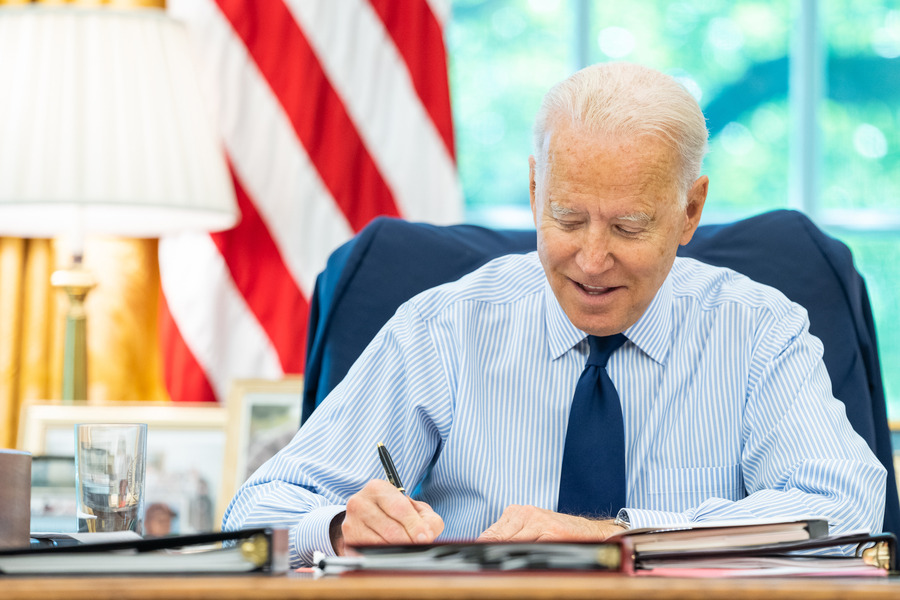Supreme Court to Decide Another Foreign Sovereign Immunities Act Case
The Supreme Court granted certiorari on Friday in OBB Personenverkehr AG v. Sachs, a case involving the commercial activity exception to the Foreign Sovereign Immunities Act (FSIA).
Published by The Lawfare Institute
in Cooperation With

The Supreme Court granted certiorari on Friday in OBB Personenverkehr AG v. Sachs, a case involving the commercial activity exception to the Foreign Sovereign Immunities Act (FSIA). Although the case was the subject of an en banc decision by the Ninth Circuit, the grant nonetheless comes as a bit of a surprise, both because the United States government opposed it and because the issues presented are not the subject of a clear conflict among the courts. Nevertheless, the case is likely to be of broad significance for FSIA litigation in part because it has been more than two decades since the Court directly addressed the statute’s commercial activity exception. It will also contribute to the Roberts Court’s growing legacy of significant foreign relations-related cases.
The first issue presented is whether the activities of a ticket agent in the United States can be imputed to state-owned, Austrian rail company OBB Personenverkehr AG (a “foreign state” under FSIA)---to show that the latter engaged in “commercial activity carried on in the United States.” This issue might be resolved based solely on the statute’s definitions of an “agency” and of a “foreign state” under 28 U.S.C. §1603 (a) and (b) or also by application of the factors set forth in First National City Bank v. Banco Para el Comercio Exterior de Cuba (Bancec) and other common law principles of agency. Although the statutory definition may appeal to the Court, the government argues that the definitions in § 1603 were not meant to resolve issues of attribution and imputed conduct under 28 U.S.C. § 1605(a)(2), which are governed in part by the alter ego analysis used (in a different context) by the Court in Bancec and by other agency principles. The issue of imputed conduct arises in a variety of ways under the FSIA, so the Court’s resolution of this issue could be significant beyond the first prong of the commercial activity exception.
The second issue presented is whether a tort action for personal injuries sustained outside of the United States is “based upon” the sale of the ticket in the United States, when the ticket sale is necessary to the duty of care element of the plaintiff’s claim. The Supreme Court reasoned in footnote 4 of Saudi Arabia v. Nelson that “based upon” does not necessarily “require that each and every element of a claim be commercial activity by a foreign state.” The Court has not opined on whether a claim is “based upon” commercial activity if that activity is necessary to only one element of the claim, although lower courts, like the Ninth Circuit in this case, have held that it is.
The case may also give the Court an opportunity to bring its recent personal jurisdiction cases to bear on the interpretation of the FSIA, and to decide whether the Fifth Amendment Due Process Clause applies to some or all entities defined as “foreign states” by the FSIA, a definition which includes agencies and instrumentalities of foreign states. The Court assumed but did not decide in Republic of Argentina v. Weltover that foreign states are “persons” for the purposes of the Due Process Clause.
Beyond its potential significance for FSIA cases, OBB Personenverkehr v. Sachs may provide a window on longer-running trends in the Court’s approach to foreign relations cases. The Court took the case shortly after the Solicitor General filed a brief opposing certiorari. In Samantar, the Court did just the opposite in 2014 by denying certiorari after the government argued that the Court should grant, vacate, and remand (although that case may still reach the Supreme Court again). These actions by the Court may be tied to what I have argued is a broader trend of waning deference to the executive branch in foreign relations cases. It will be interesting to see how the Court deals in OBB Personenverkehr with the concern that interpreting the commercial activity exception broadly could generate friction with other countries and put the United States out of step with international practice. The U.S. government’s brief evinces little concern about these issues, contrary to the amicus brief by the Netherlands and to then-Chief Judge Kozinski’s dissent from the Ninth Circuit’s en banc opinion. The Court has recently appeared to give the government’s views on such matters little weight, as illustrated both by questioning directed to the Solicitor General at the Zivotofksy oral argument in November and by the Court’s decision last Term in another Foreign Sovereign Immunities Act case, NML Capital v. Argentina.
Ingrid Wuerth Brunk is the Helen Strong Curry Professor of International Law at Vanderbilt Law School, where she also directs the international legal studies program. She is a leading scholar of foreign affairs, public international law and international litigation. She serves on the State Department’s Advisory Committee on Public International Law, she is a Reporter on the American Law Institute’s Restatement (Fourth) on U.S. Foreign Relations Law, and she is on the editorial board of the American Journal of International Law. She has won Fulbright and Alexander von Humboldt awards permitting her to spend substantial time in Germany and she is an elected member of the German Society of International Law.





